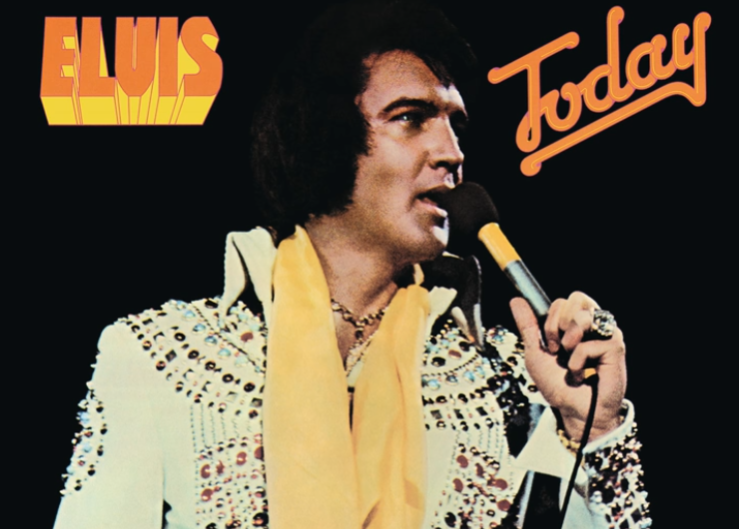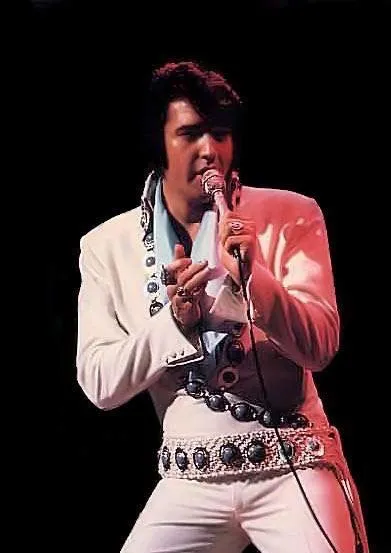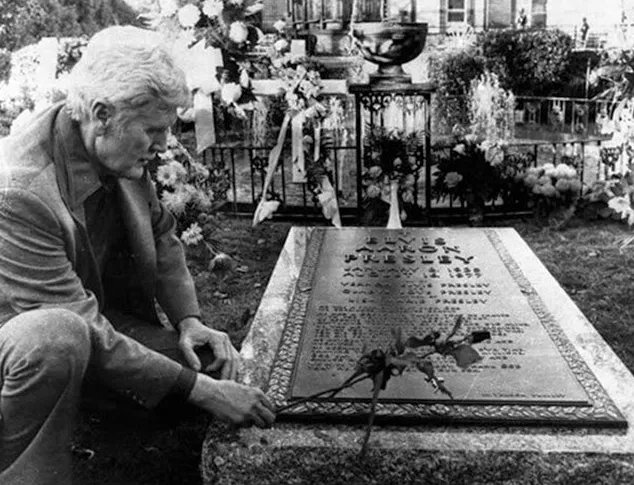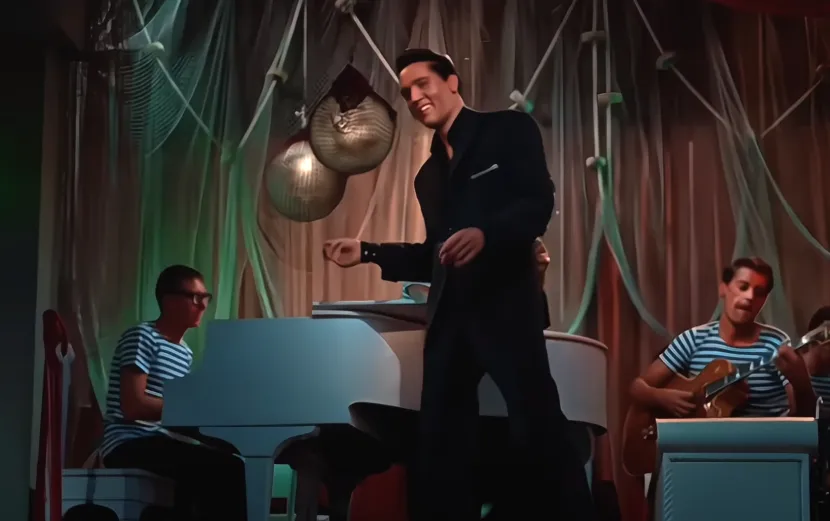About the song
(Watch the video below)
In the annals of music history, few names resonate as deeply and enduringly as that of Elvis Presley. Often referred to as the "King of Rock and Roll," Elvis's life story is one that seems almost mythical, akin to a modern-day fairytale. Born on January 8, 1935, in Tupelo, Mississippi, Elvis Aaron Presley would rise from humble beginnings to become one of the most iconic figures in popular culture.
The fairytale of Elvis begins in the small, impoverished town of Tupelo, where he grew up in a two-room shotgun house with his parents, Vernon and Gladys Presley. Despite their financial struggles, Elvis's parents instilled in him a love for music from an early age. It was in the vibrant, soulful sounds of gospel music that Elvis found solace and inspiration, singing in the local church choir and dreaming of one day becoming a famous singer.
Like many classic fairytales, Elvis's journey to stardom was marked by a series of fortuitous events and chance encounters. In 1948, when Elvis was just 13 years old, his family moved to Memphis, Tennessee, where he would eventually make his mark on the music world. It was in Memphis that Elvis encountered the rich tapestry of musical influences that would shape his distinctive style, from the rhythm and blues of Beale Street to the country and western tunes of the Mississippi Delta.

Elvis's big break came in 1954 when he walked into the offices of Sun Records and recorded a demo of "That's All Right," a blues song originally performed by Arthur Crudup. The song's infectious energy and Elvis's electrifying vocals caught the attention of Sun Records founder Sam Phillips, who recognized the young singer's potential and released the song as a single. Almost overnight, Elvis became a sensation, captivating audiences with his raw talent, magnetic stage presence, and undeniable charisma.
As Elvis's star continued to rise, his fairytale journey took him to the pinnacle of success. With hit singles like "Heartbreak Hotel," "Hound Dog," and "Love Me Tender," Elvis dominated the charts and captured the hearts of millions around the world. His groundbreaking performances on television, including his legendary appearances on "The Ed Sullivan Show," catapulted him to superstardom and cemented his status as a cultural icon.
But like all great fairytales, Elvis's story also had its share of challenges and obstacles. Despite his unparalleled success, Elvis grappled with the pressures of fame, the demands of his career, and the complexities of his personal life. His relationship with manager Colonel Tom Parker, while instrumental in shaping his career, also brought its own set of tensions and conflicts. And behind the glittering Facade of his public persona, Elvis struggled with feelings of isolation, insecurity, and self-doubt.

Tragically, Elvis's fairytale journey came to an untimely end on August 16, 1977, when he passed away at the age of 42. His sudden death sent shockwaves around the world and plunged millions of fans into mourning. Yet, even in death, Elvis's legacy endures, a testament to the enduring power of his music and the indelible mark he left on the world.
Today, more than four decades after his passing, Elvis Presley remains a larger-than-life figure, his legend enshrined in the annals of music history. From his humble beginnings in Tupelo to his meteoric rise to fame, Elvis's fairytale journey is a timeless reminder of the transformative power of music, the enduring allure of celebrity, and the universal quest for love, belonging, and self-expression.
In conclusion, the fairytale of Elvis Presley is a story of rags to riches, of dreams fulfilled and dashed, of triumphs and tribulations. It is a story that continues to captivate and inspire, reminding us that sometimes, against all odds, ordinary people can achieve extraordinary things and leave an indelible mark on the world. As long as there are hearts to stir and dreams to chase, the legend of Elvis Presley will live on, a timeless tale of music, magic, and the enduring power of the human spirit



